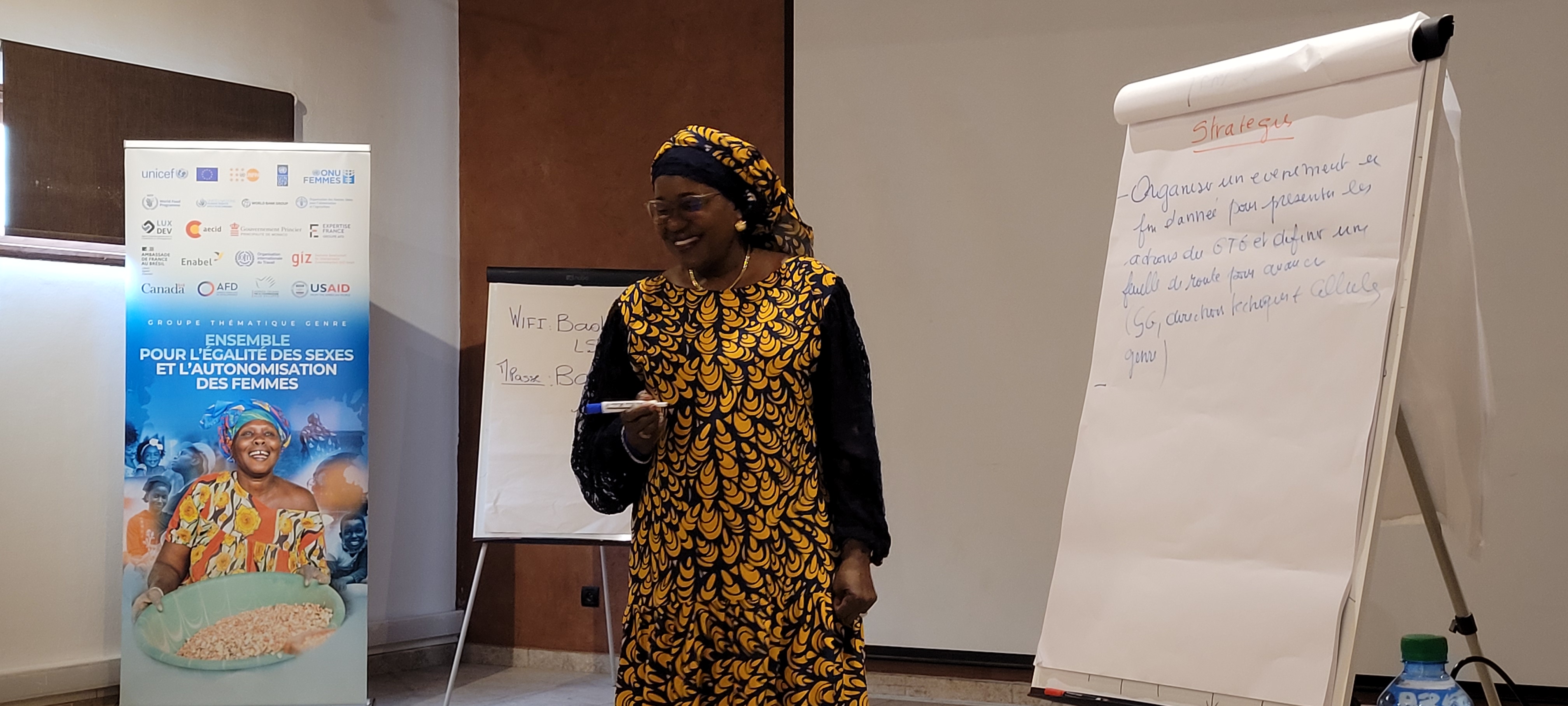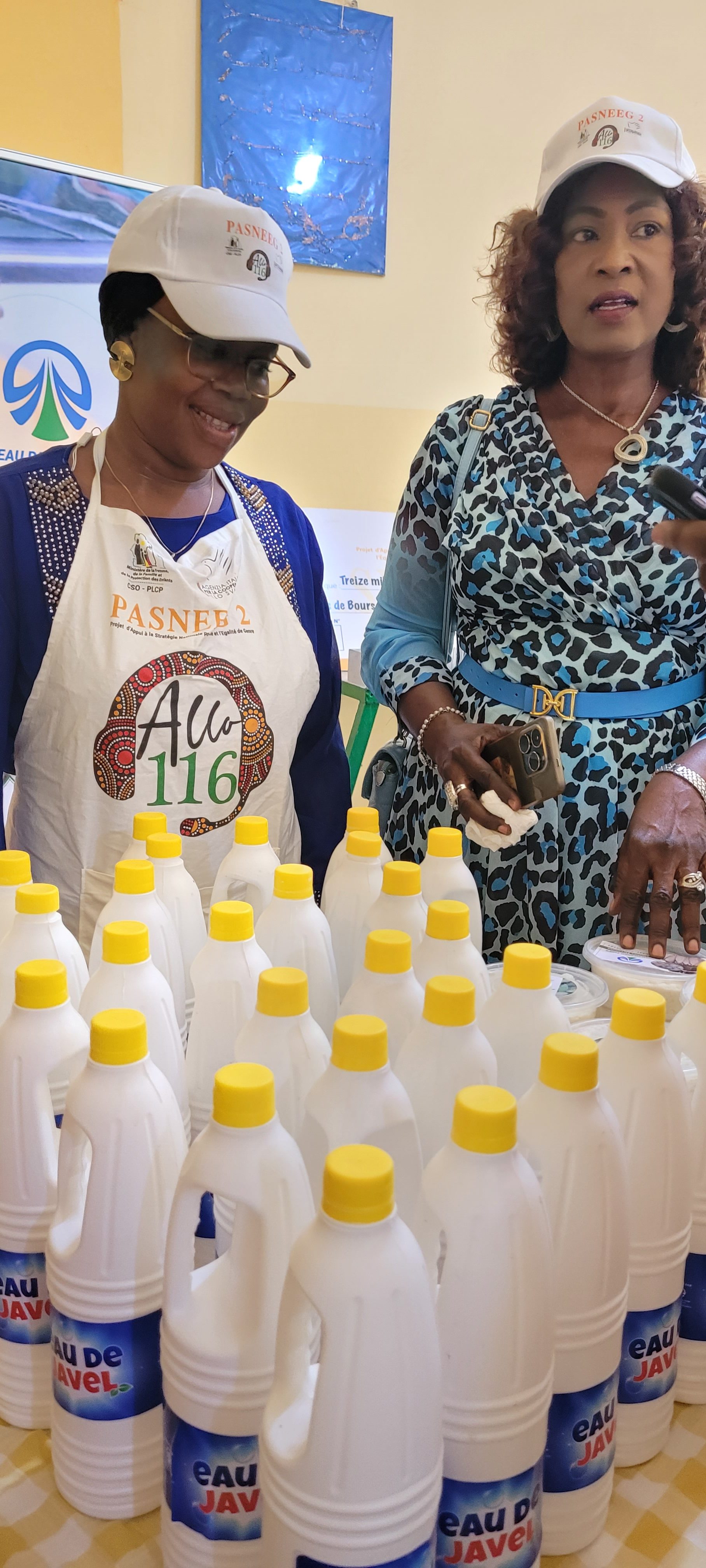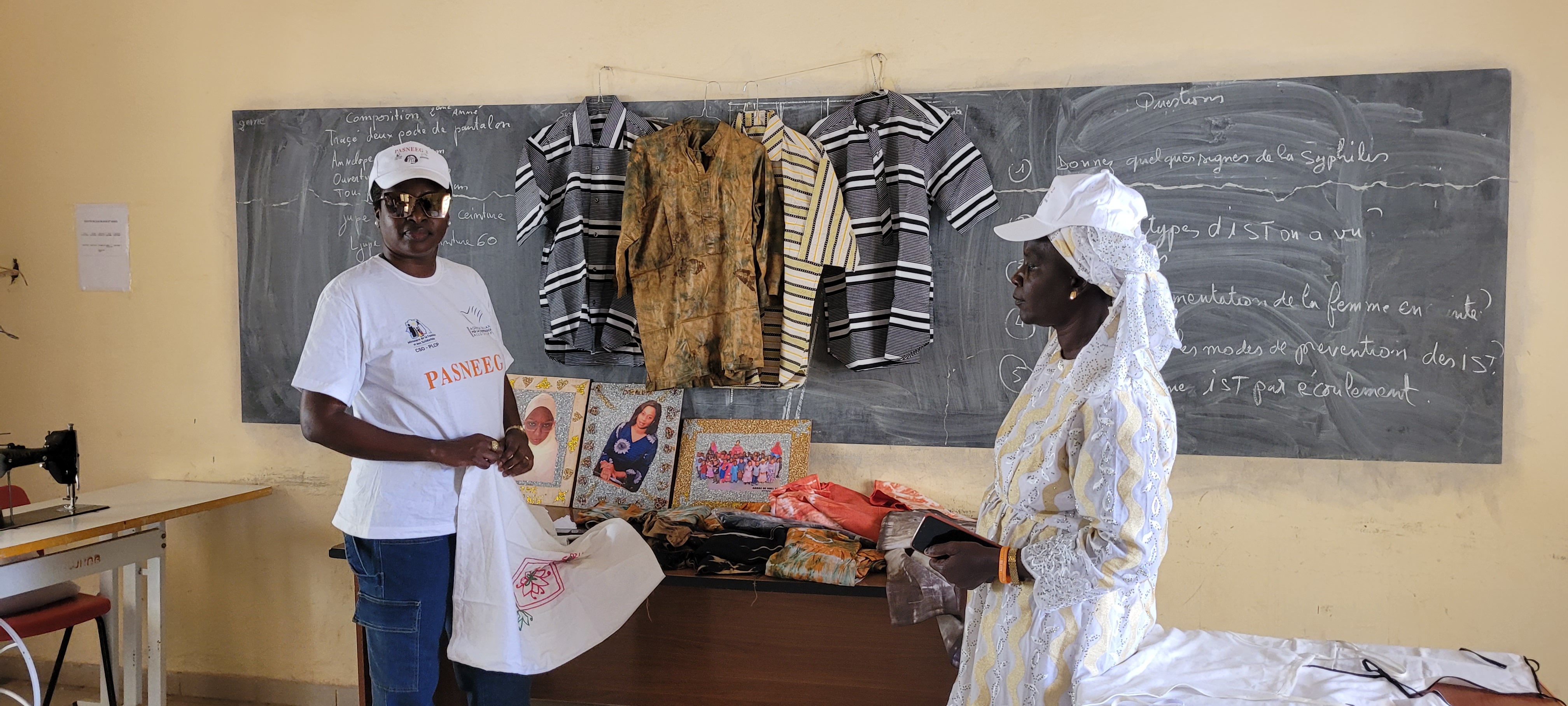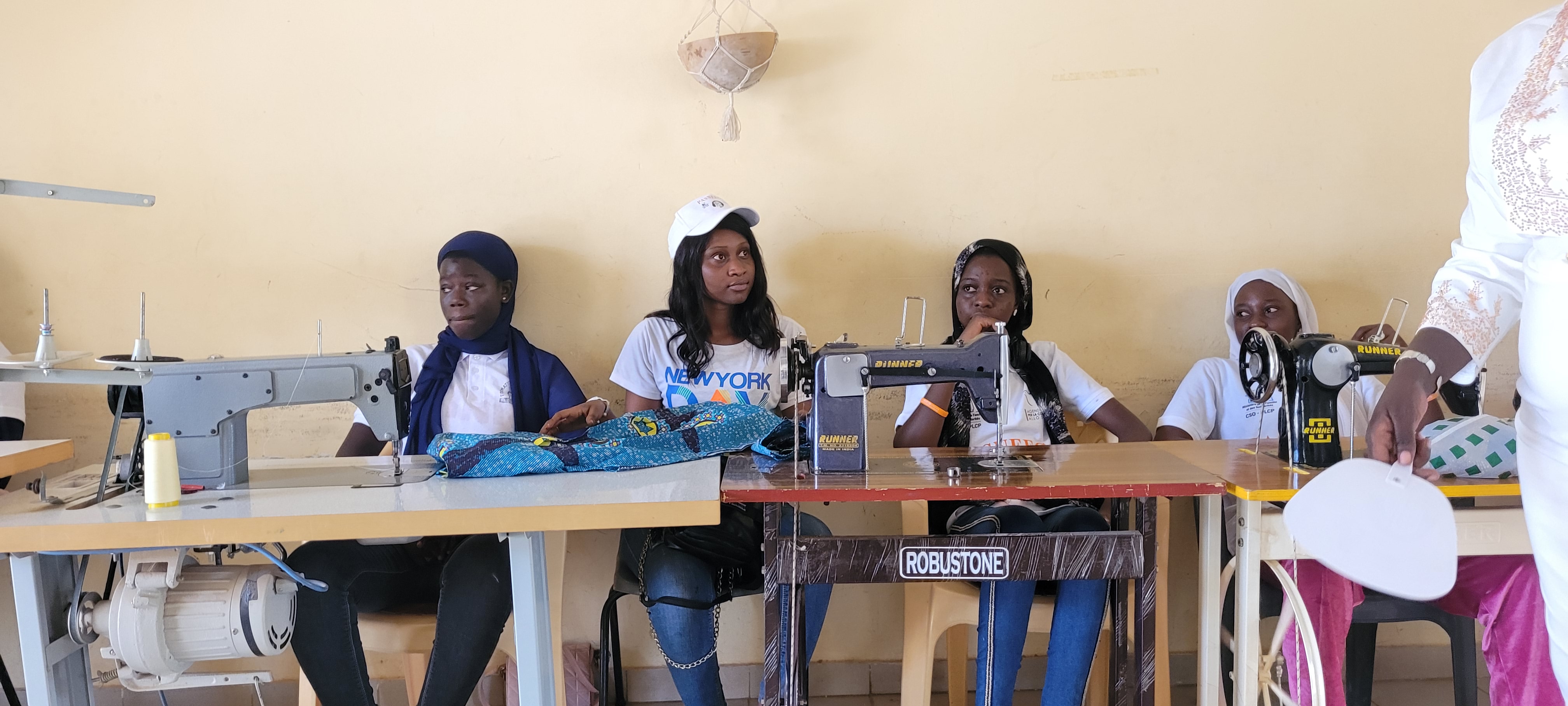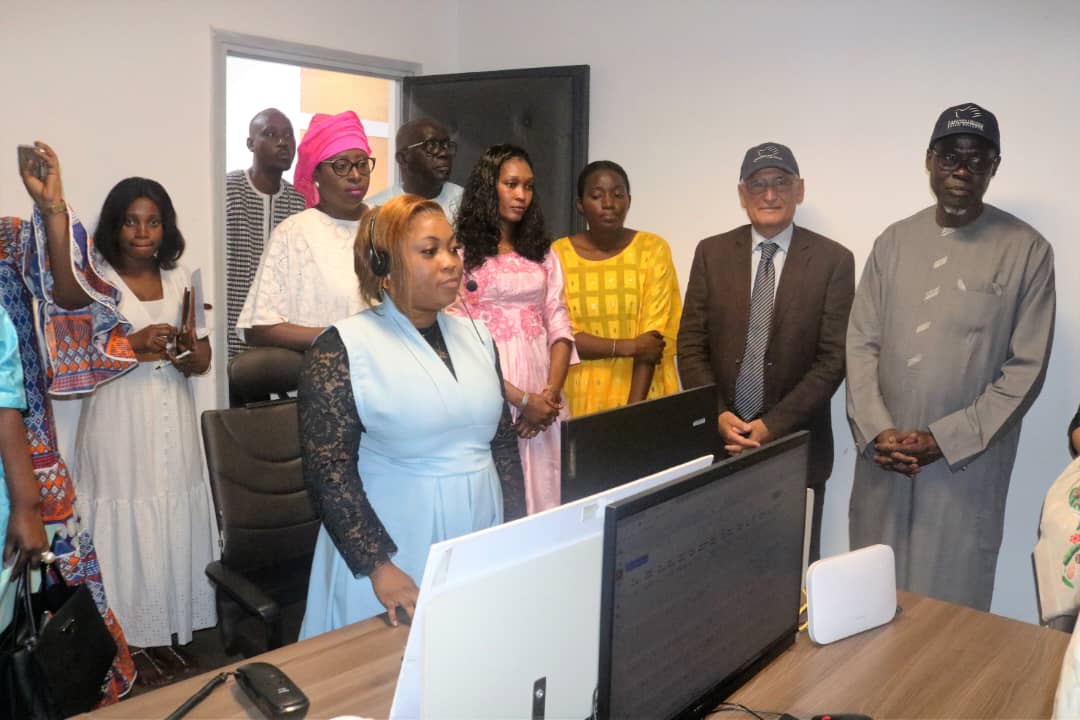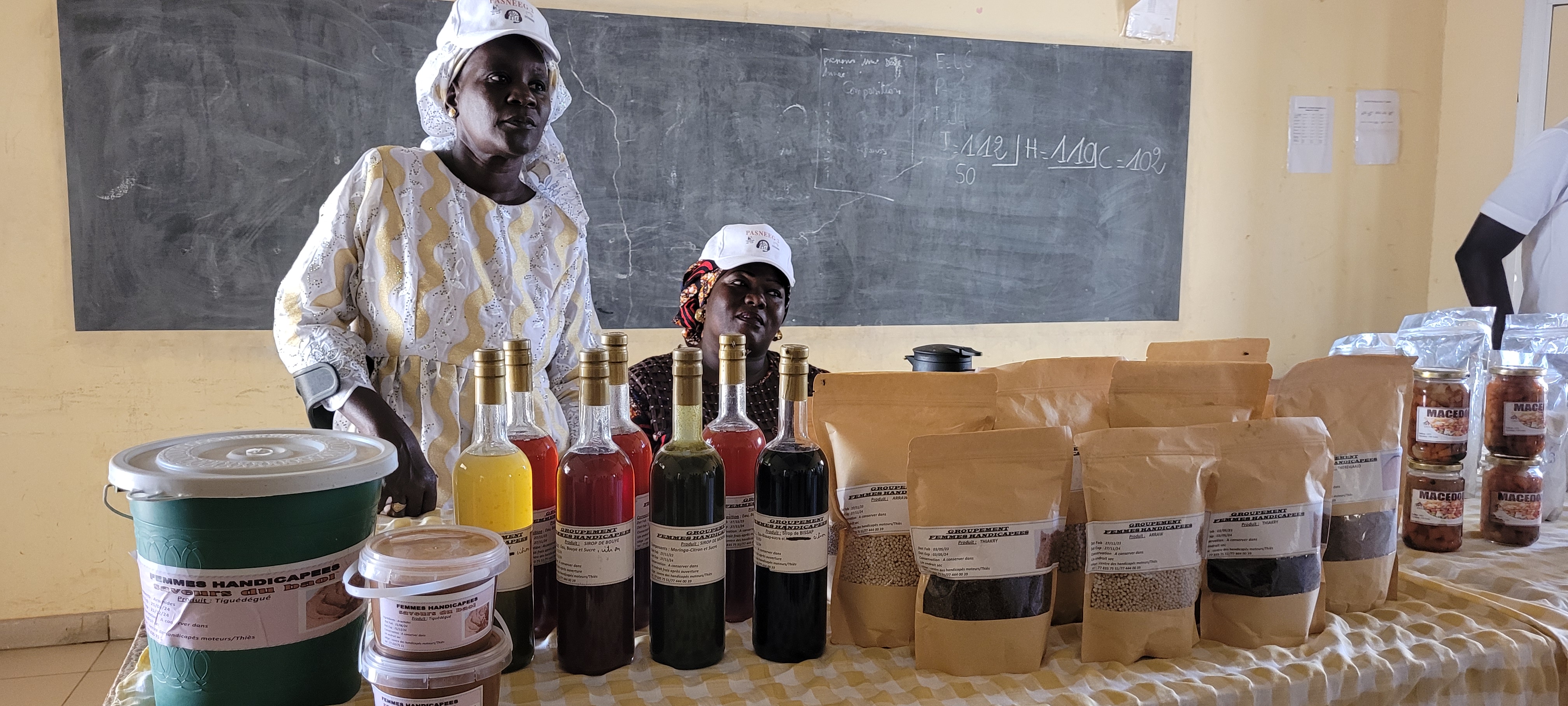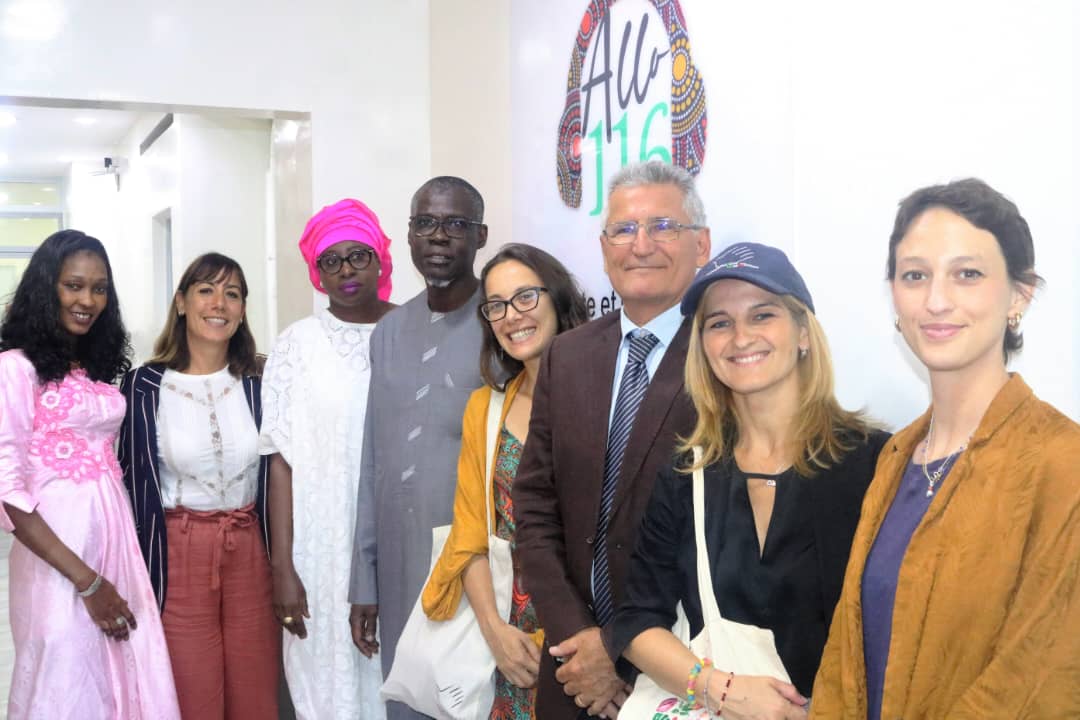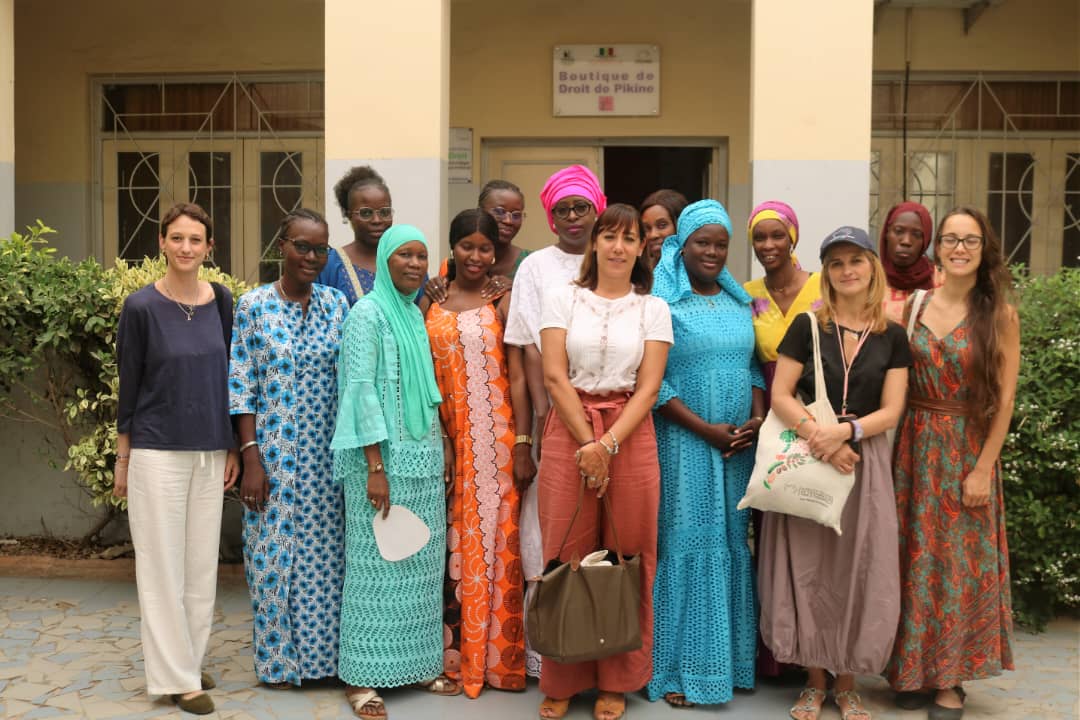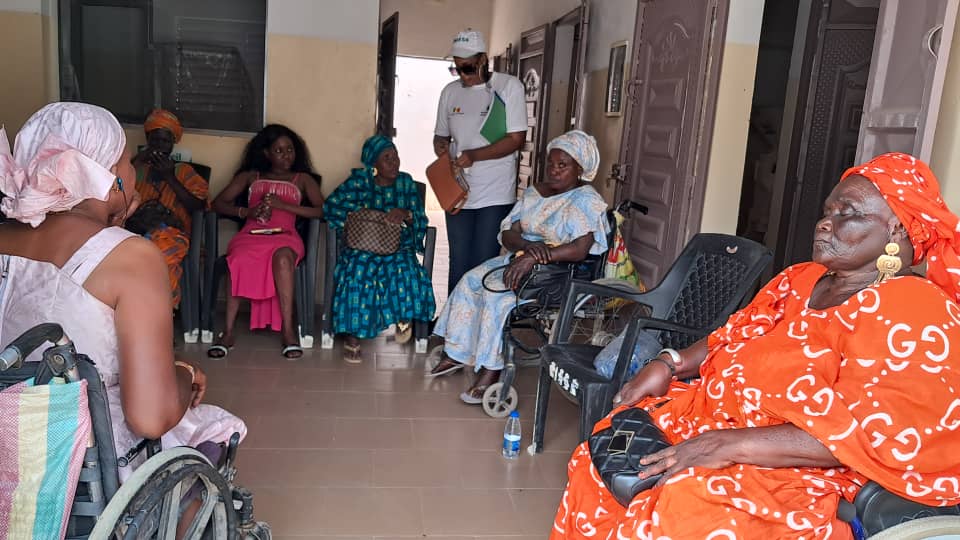The mission of the AICS Deputy Technical Directorate, held from July 3 to 11, 2024, focused on the actions implemented by the Agency in Senegal concerning gender equality, has concluded. Numerous meetings and field visits were conducted, during which the efforts made by the Senegalese government, supported by Italian Cooperation, to activate services to combat sexual and gender-based violence and to support women’s empowerment and economic independence were appreciated.
At the beginning of the mission, participants attended the “retreat” of the Gender Thematic Group (GtG) of donors (UN WOMEN and Italy, UNFPA, ILO, OHCHR, UNDP, USA, Luxembourg, France, Canada, EU), which met to define joint donor priorities in the field of gender equality and the coordination methods with the new local government. Italy plays a leading role in Senegal in this sector, reflected in its leadership of this group since 2023, alongside UN Women.
The visit of the Deputy Technical Directorate delegation was also an opportunity to meet various local authorities, primarily the Secretary-General of the Ministry of Family and Solidarity, Ndiougou Diouf, with whom the delegation visited the 116 hotline—created with funds from the PASNEEG II project to provide support to women and children victims/survivors of sexual and gender-based violence and child abuse. The creation of this hotline, combined with the establishment of “boutique de droits” (rights boutiques) in various parts of the country, offering legal assistance and support centers for the population, including victims/survivors of violence, was visited by the mission.
Of particular significance was the initiation—attended by the Italian delegation—of the training program for the police and gendarmerie forces of the Sedhiou Governorate. This program aims to enhance the ability of law enforcement to safely and sensitively handle women victims/survivors of violence and to establish a dedicated desk at the Sedhiou police station for gender-based violence victims.
Testimonies were also heard from women who benefited from training programs and economic grants for starting micro-enterprises, provided by the PADESS program. This program, complementing PASNEEG II, promotes women’s economic independence.
During this mission, special attention was paid to the needs of women with disabilities, promoting a dialogue with the government offices executing the project on the importance of strengthening actions for the inclusion of people facing double discrimination due to disability. Needs were assessed from an intersectional perspective, with a specific focus on the needs of women with disabilities.
